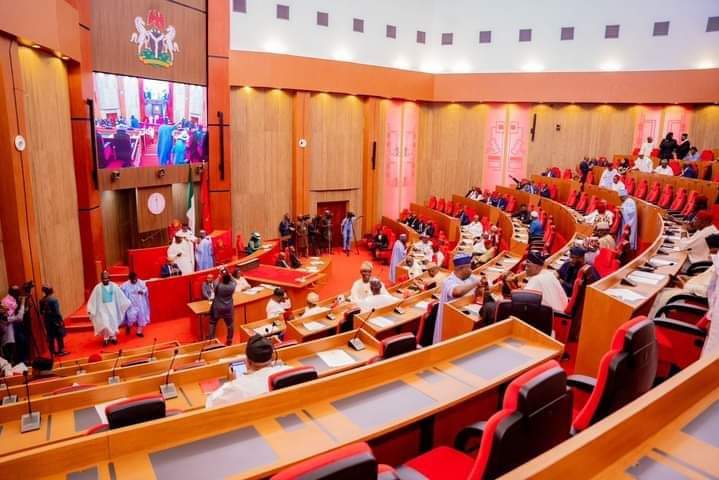
Garba Mohammed
A controversial attempt to amend the Senate Standing Orders — a move critics say was designed to smoothen the path for the return of current presiding officers in the next Assembly — was abruptly halted on Tuesday after lawmakers raised procedural objections and questioned the motives behind the proposal.
The amendment, sponsored by Senate Leader Opeyemi Bamidele and presented on his behalf by Senator Lola Ashiru, sought to alter key sections of the 2023 Standing Orders to reflect what he described as “emerging national realities” and evolving institutional needs. But the moment Ashiru introduced the motion, murmurs of discontent rippled through the chamber.
At the heart of the controversy were three proposed alterations:
Allowing Senators-elect to vote before taking their oath of office — a move that would permit incoming lawmakers to choose the Senate President and Deputy Senate President even before being formally sworn in.
Making prior Senate experience compulsory for presiding officers — only senators who had completed at least one full four-year term would be eligible to contest for the top leadership positions.
Introducing stricter ranking rules — placing former presiding officers and long-serving legislators at the top of a new hierarchy, effectively limiting first-term senators to contest only when no ranking member is available.
Former Gombe State governor, Senator Danjuma Goje, was the first to oppose the amendments, urging the chamber to discard the three contentious clauses entirely.
“I propose that we remove 1, 2, and 3 as they are the areas of contention,” Goje said.
Minority Leader Abba Moro swiftly followed with a procedural point of order, citing Order 109 of the Senate Rule Book. He reminded the Senate that any amendment must be formally drafted, printed, circulated at least seven days prior, and listed on the Order Paper before debate can commence.
“Have we honoured this rule? Otherwise, we should tarry a little and follow due process,” Moro warned.
As the chamber became increasingly unsettled, Senate President Godswill Akpabio weighed in, particularly on the proposed ranking clause. He noted that the new hierarchy could distort leadership contests and predetermine outcomes.
“Number four means nobody will be Senate President if someone newly elected is the party’s candidate,” Akpabio said, adding humorously, “Senator Yau, with number four, you automatically become Senate President because you’re a landlord here.”
Akpabio upheld Moro’s point of order, ruling that the legislative process had not been followed.
“If we have not followed due process, then what we are engaging in is an exercise in futility,” he declared.
With procedural irregularities confirmed and no consensus in sight, deliberations were halted, and the motion was stepped down to a future legislative date.
The stalled move has further fuelled speculation about behind-the-scenes manoeuvres ahead of the next Assembly’s leadership contests — and underscored the growing tensions within the Senate over succession politics.
